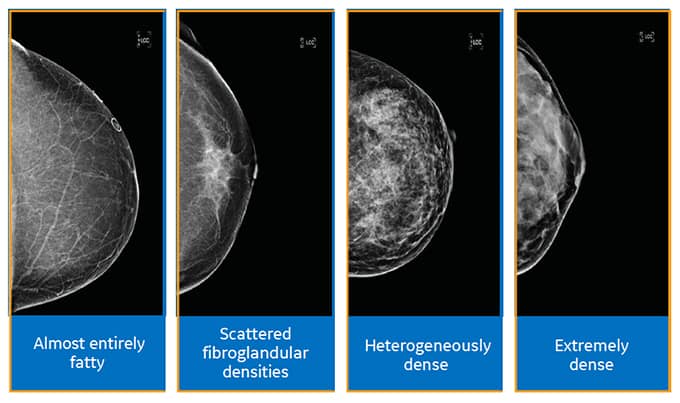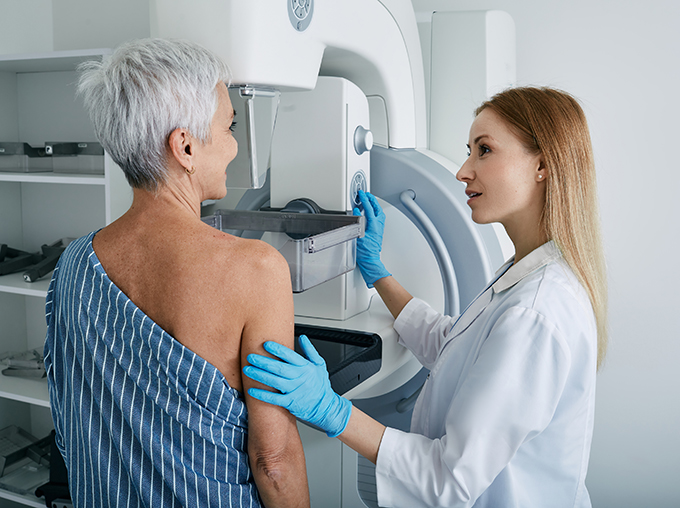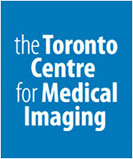Automated Breast Ultrasound (ABUS) at the Toronto Centre for Medical Imaging
Contact TCFMI at 416-368-8488 to Schedule Your Automated Breast Ultrasound Appointment (ABUS)
An Automated Breast Ultrasound uses high frequency sound waves to take 3D images of the whole breast, targeting specific areas and ensuring they are displayed in a reproducible fashion. It is especially beneficial to women with dense breast tissue, because a high breast density score can make a mammogram harder to read and ABUS allows the technologist to check the breast from a variety of angles offering more accurate interpretations.
Automated Breast Ultrasound is often recommended as supplemental screening in conjunction with a screening mammography for women with extremely dense breast tissue, and women with heterogeneously dense breast tissue.


Supplementary Screening for Dense Breasts (ABUS)
If you have been told that you have dense breasts supplemental screening with automated breast ultrasound may be beneficial for you as part of your regular screening for breast cancer.
It is important for you to understand the following about breast density (BI-RADS category C and D) which you may have been told you have or seen on your report.
- Greater breast density results in lower sensitivity for mammography and higher likelihood that cancer will be missed.
- The assessment of breast density is subjective and, therefore, variable.
- Density itself is a risk factor. Women with dense breasts have approximately 1.5 to 3 times higher risk than the average woman, or woman with fatty breasts.
- Breast density can be affected by age and weight and therefore can change over time.
- Routine screening mammogram is recommended for women over age 40. ABUS (automated breast ultrasound) is not a substitute for your mammogram. ABUS is supplementary to your mammogram.
*Note that supplementary screening for dense breast (ABUS) is currently not approved by OHIP. There will be a charge for this service.
Insurance companies are slowly recognizing the utility of this service, and some are covering it under their benefits plans.


